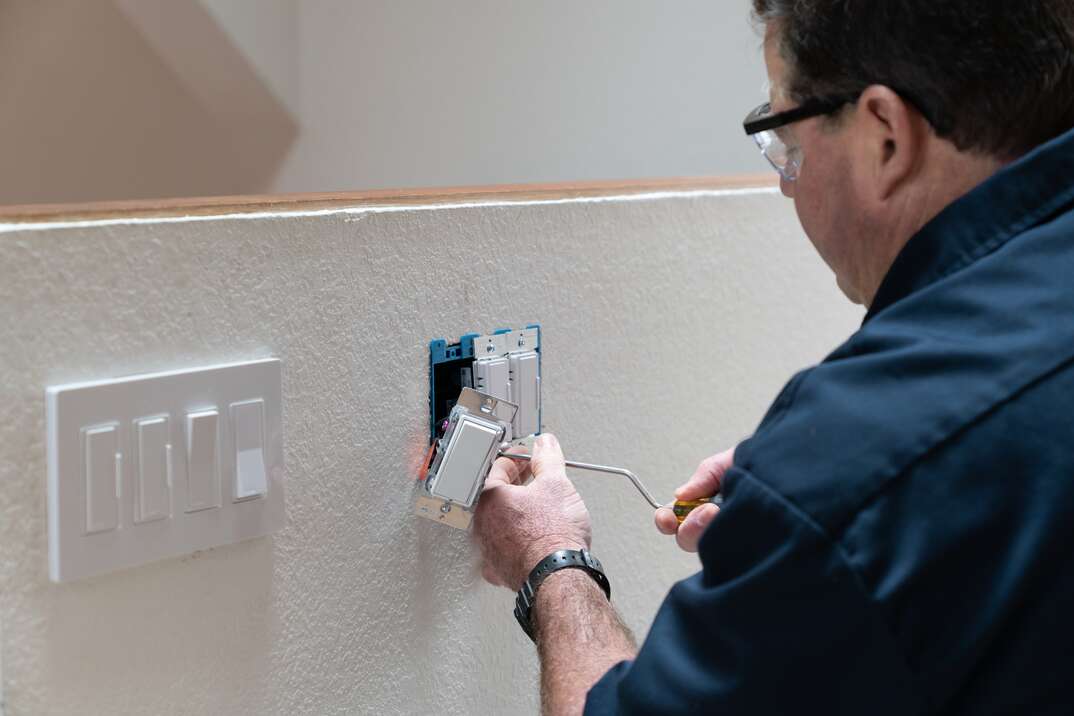15 Ways to Save on Your Electric Bill

Looking for ways to save on your electric bill? What you do in your home on a daily basis affects how much electricity you use. Making yourself more aware of your incremental power usage is a smart place to start.
This May Also Interest You: Gimme a Tax Break: 5 Things to Know to Get the Latest HVAC Tax Credits and Rebates
Sometimes it's as simple as being aware of turning off lights when you leave a room or other common-sense measures. Others take more effort and planning.
Let's take a look at some of the many ways you can save money on your electric bill:
1. Use a Programmable Thermostat
Trying to cut back on energy usage is simple when you have a programmable thermostat. With a manual one, you have to remember to change the temperature every time you leave and again when you come home, and meanwhile you're left shivering or sweating until the temperature adjusts.
When you program your system to adjust to the temperature you want it when you're not home, you're able to save energy by not running it as much when you don't need it. It's set on a time schedule and adjusts on its own.
2. Add More Insulation to Your Home
Is your house cold in the winter and hot in the summer? That could mean that the insulation in your home isn't doing the job, because you don't have enough. If you don't know how to determine that, have a professional come to your home and inspect it for you.
Your heating, ventilation and air conditioning unit could be working extra hard trying to warm or cool the home and drawing more electricity. By having someone address your insulation deficiency, you can save money on your bill throughout the year. Spending money to fix the issue may be a bummer in the moment, but in the long run, it can save you cash.
3. Replace Your Air Filters
The air filters in your home should be replaced on average every three months. That time frame can vary based on factors such as whether you have animals, as the hair and dander that come with having cats and dogs can clog the filters faster.
4. Lower the Temperature on the Water Heater
Your water heater accounts for a significant portion of the energy used in your home. It would benefit your utility bill greatly to lower the temperature, by as little as 10 degrees, especially if you aren't going to be home for a few days anyway.
5. Use a Clothes Line To Dry Clothes
When it's a sunny breezy day outside, take your clean wet laundry outside to dry on a clothesline. Even little changes like this can add up to a lower electric bill, plus, there's nothing like the fresh smell of line-dried clothes.
6. Opt for LED Light Bulbs
Energy-saving LED light bulbs cost more than regular bulbs upfront, but LED bulbs can last far longer. Over the course of a year, it can save you as much as $75 on your electric bill.

7. Install Dimming Light Switches
The amount of electricity that lights use can add up by the end of the month. If you have a dimmer switch, you can choose to use less light or more light, depending on what is needed. If you don't need it, don't use it, and you won't have to pay for it.
8. Have an Energy Audit Done
Having an energy audit done to your home could be prove beneficial. There are many ways you might be using more energy than necessary without knowing it: cracks, holes or leaks that you aren't aware of. A professional inspection will uncover these issues, and potentially save you some scratch.
The auditor will come to your house and perform a series of tests to determine where your efficiency deficiencies. The inspector will check things such as:
- Your electrical system
- The insulation in your attic
- Your fireplace
- Proper placement and number of air vents
- Thermostat settings and the type of system you have
- The insulation and framing in your walls
- The seal on your windows
- Cracks and holes for wires and pipes
9. Use More Cold Water Instead of Hot
Hot water draws more energy. In the areas in your home that you can use cold instead of hot, doing so will save you money. Washing your clothes in hot water isn't always necessary. You can use cold or even warm water and get the same results.
10. Time Your Showers
This may sound like a silly thing to do, but shortening your showers can stretch your dollar. It's easy to get carried away and stay in the warm shower for a longer than you need to get clean. But the more hot water that's used, the higher your electric bill will be. Try it out for a month and cut your showers back by 2 minutes each to see if it makes a difference on your bill.
11. Check the Fridge and Freezer Temperatures
There's no need to have the temperature below 38 degrees to keep food fresh in the fridge. The freezer should always stay between 0 to 5 degrees, too. Keeping things colder than that is only going to cause your fridge to work harder, use more energy and waste more money.
12. Check for Leaky Faucets
When things get quiet in the house and you hear dripping noises, you should find the source as quickly as you can. You might be surprised at the amount of water a leaky faucet can go through drip by drip, especially if it takes you a few days to discover it. Gallons of water, and dozens of dollars, can be lost.
13. Upgrade to Energy-Efficient Appliances
They don't make 'em like they used to, and in the case of appliances, that's a good thing. If your stove, microwave, dishwasher or any other appliance is an older model, you could save money by upgrading to a newer, more energy-efficient one. Today's dishwashers and washing machines are designed to use significantly less water, and other appliances use less energy when as well.
14. Use Smart Power Strips
Do you leave your phone charger plugged all the time? A lot of people do without thinking about the energy being used. Just because your phone or tablet isn't connected to the charger doesn't mean energy isn't being used. By using a smart power strip, you can stop the power suck and still leave your charger where it needs to be.
15. Turn Off TVs, Lights and Electronics When You're Not Home
It's so easy to just walk out of the house and leave lights or a TV on. No one's home to watch the tv or use the lights, of course, the only thing happening is energy being wasted. It's important to remember to turn off lights and electronics when you're not home. Don't overpay for your electricity if all you have to do is flip a switch to save money.
Tools and Materials You May Need
Some jobs require a professional's expertise, but there are many jobs in your home you can do yourself. Some items to have in your toolbox for these do-it-yourself maintenance and repair activities are:
- A flat-head screwdriver
- A Phillips-head screwdriver
- A drill and drill bits
- A hammer
- Nails
- Extra air filters in the sizes you need
- A wrench
- Clothes pins and a clothesline
Other Ways to Save
Here are a few frequently asked questions on the subject of home energy saving: There are a multitude of ways that you can save on your home utility bill by being more aware. When you walk out of a room, stop and think about the items pulling electricity that you aren't using and turn them off. Some other ways are:
- Open the curtains and take advantage of the natural sunlight for both light and heat.
- Don't let the water faucet run while brushing teeth, shaving or washing dishes.
- Unplug device chargers when they aren't being used.
Since we're all home now more than ever, being prepared for unexpected home repairs with a plan from HomeServe is important. Having a plan in place gives you the peace of mind knowing that you can simply call our 24/7 repair hotline for covered breakdowns. See what plans are available in your neighborhood.


